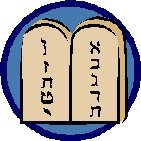TEN COMMANDMENTS—EXODUS 20:3-17
Salvation from sin was accomplished and finished at Jesus’ death and resurrection. He gave His body to be broken that men might have an opportunity to choose the Bread of Life. Eating of that Bread brings salvation for whosoever will. He gave His blood to endorse the New Covenant that gives man an everlasting life of love and goodliness, being in perfect covenant with God (Matthew 26:26-28).
“The satisfaction of the full justice of God was meet and the proof of this was in His resurrection from the dead. The rites and ceremonies of the law and the predictions of the prophets all looked forward and bore witness of the great redemption in Christ that would justify men apart from both the law and the prophets (Colossians 2:14-17; Romans 3:21-26). God was well pleased with the sinless sacrifice of His Son, which met all of the requirements for a just sacrifice that could pay the penalty for man’s treason and sin. After the penalty of sin was paid, God raised Jesus from the dead. Hallelujah! Up from the grave He arose because He had defeated all of God’s foes. The full justice of God was meet perfectly.”
… “The blotting out of the Old Covenant and the making and sealing of the New Covenant was finished by Jesus’ death and resurrection. A new covenant was instituted with the shed blood of the Lamb and sealed with the witness of the Holy Spirit when He raised Jesus from the dead. Now, through Jesus, in Whom all the Godhead bodily dwells, the believer is complete “in Him,” who is the head of all principality and power: in whom the believer has been circumcised in his heart, not by the cutting of the flesh, but by the circumcision of Christ in putting off the body of sins of the flesh. Christ fulfilled all the law to become a true mediator between God and man. He filled all the laws full of Himself. He instituted a better covenant with better promises for the believer. There is not anything that needs that cannot be found in the completed, perfect work of Christ at the cross. His resurrection is the promise and guarantee that He can fulfill the New Covenant. Now we are freed from the law of sin and death through the work of Christ on the cross. No one can “work” his way into heaven by obeying laws and rituals because all must come through the “Door” of Christ Jesus. This did not do away with the law and precepts of God. Christ came to fulfill the laws, not destroy them…for the Ten Commandments are restated in the New Testament. God says, ‘If you love Me, you will keep My commandments’ (1st John 5:2-3). The Holy Spirit was sent to endue the believer with power to be able to keep His commandments (Acts 1:8), however, the believer must choose to do so. The first four commandments deal with how people are to respect and fear God; and the other six are instructions on how people are to deal fairly with their fellowman.”
TEN COMMANDMENTS—EXODUS 20:3-17
RESTATED IN THE NEW TESTAMENT
1. Where the Old Testaments in Exodus 20 says, “To have no other gods before Me” (v3), the New Testament in 1st John 5:21 says, “Little children, keep yourselves from idols,” an idol being anything you put before God.
2. “You shall have no graven images” (v 4-6) is restated in Romans 1:23, men should not change “the glory of the incorruptible God into an image made like to corruptible man, and to birds, and four-footed beasts, and creeping things.” Man, to his shame, has made himself images and dead gods out of metal and wood to look like men, birds, cattle, dogs, crocodiles, frogs, and other such things, worshipping the creation of God more than the Creator. God, alone is to be worshipped.
3. “Take not God’s name in vain” (v 7). Today God’s name is still to be feared and respected. “Don’t take His name in vain” is again declared in Matthew 23:31-32.
4. “Keep the Sabbath holy” (v 8-11) can be compared to Hebrews 10:25, “Do not forsake the assembling of yourselves together.” We are still to keep God’s Sabbath holy, but in the New Covenant Jesus is our Sabbath rest. He is our all in all. Believers are to respect the wisdom of the Lord and rest in Him daily.
5. “Honor your father and mother” (v 12) is a godly respect due each parent as seen in Ephesians 6:1-3.
6. “Do not kill” (v 13) is a respect for God’s wisdom in creating each person. Mathew 5:21-22 shows the believer than even his attitudes need to be respectful of God. Also 1st Peter 4:15 says, ‘let no man suffer as a murder.’
7. “Do not commit adultery” (v 14). All sins destroy, but fornication (1st Corinthians 6:18) brings confusion and deception into a person’s mind and into his relationships with others, as well as with God.
8. “Do not steal” (v15) for any reason. Sowing discord only reaps discord (Ephesians 4:28). Stealing is a lack of faith that God will provide.
9. “Do not bear false witness” (v 16) is a regulation to keep moral standards and truth as your godly conduct with each other (Ephesians 4:25).
10. “Do not covet” (v 17). Don’t let greed take hold of your soul; it will only lead to ruin (Ephesians 5:3).
...Excerpt from Chapter 15.



0 Comments:
Post a Comment
<< Home